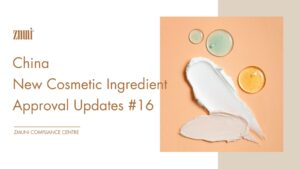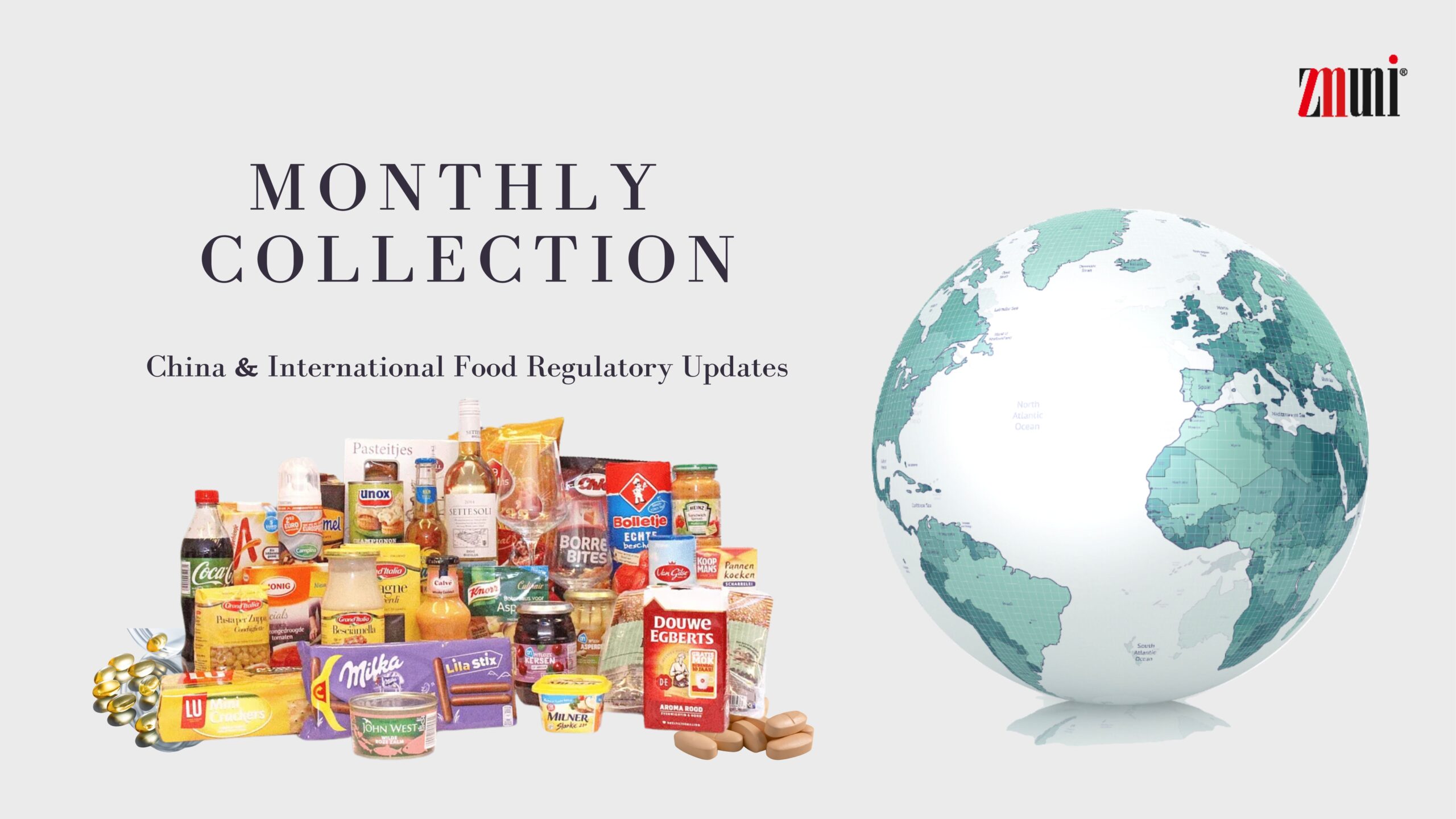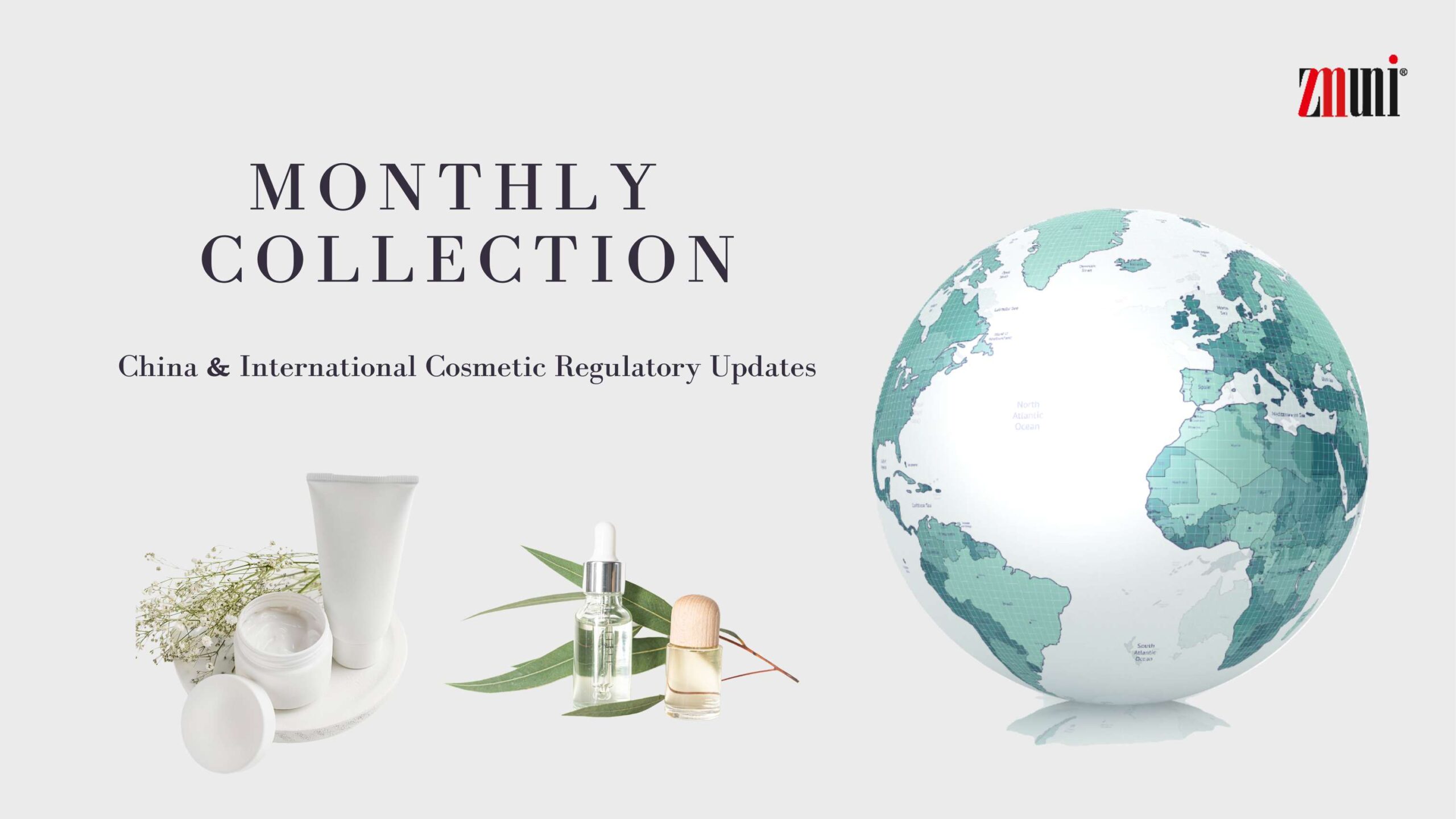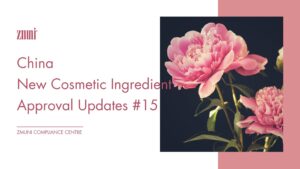+86 571 8659 2517
+86 180 5841 8258
info@zmuni.com

From August 6 to August 13, 2025, 5 new cosmetic ingredients were notified with the China National Medical Products Administration (NMPA). The technical requirements for the 5 new cosmetic ingredients mentioned above have not been disclosed, and they have not yet entered the safety monitoring period. 6'-Sialyllactose sodium salt, 6'-SL 6'-SL is an important member of the human milk oligosaccharides (HMOs) family, composed of galactose, glucose, and sialic acid. As one of the most abundant sialylated HMOs in breast milk, 6'-SL is known for its exceptional moisturizing and skin-repairing properties. Previously, 6'-SL obtained approval for use in food applications from both

This article provides a comprehensive overview of key regulatory developments in the food sector in July 2025, both in China and internationally. It focuses on updates related to new food ingredients, food additives, health foods, and feed, aiming to offer timely and in-depth regulatory alerts for enterprises engaged in food import and export. China Food Regulatory Updates Three New Foods 🔹China grants first approval for D-Allulose as a new food ingredient On July 2, 2025, the National Health Commission of China officially approved 20 substances as "Three-New Food", including 5 new food ingredients, 9 new food additives, and 6 new

The global cosmetics regulatory environment continues to evolve. To help businesses stay updated with regulatory changes, ZMUni Compliance Center regularly releases a monthly recap of global cosmetics regulations. This article covers the regulatory developments related to cosmetics in China and globally in July 2025. China Cosmetic Regulatory Updates New Cosmetics Ingredients (NCI) Notification On July 11, 2025, China's National Medical Products Administration (NMPA) released the List of Registered and Notified New Cosmetic Ingredients. As of the end of June 2025, a total of 272 new cosmetic ingredients had been registered or notified in China, reflecting steady growth driven

From July 23 to August 5, 2025, 5 new cosmetic ingredients were notified with the China National Medical Products Administration (NMPA). The technical requirements for the 5 new cosmetic ingredients mentioned above have not been disclosed, and they have not yet entered the safety monitoring period. Saccharomyces/Rice Ferment Filtrate Extract In December 2021, Shanghai Jahwa United Co., Ltd., together with Jiangsu Hengshun Vinegar Ind Co., Ltd., filed two patents related to Saccharomyces/Rice Ferment Filtrate Extract, one for its potential in treating eczema (CN 113855609 A), and another for anti-aging applications (CN 113855765 A). The extract is derived from fermented

On August 1, 2025, the National Health Commission of China issued a notice seeking public comments on 30 national food safety standards, including Standard for the Use of Nutritional Fortification Substances in Foods, which is the third time that this standard has been open for public comments during the revision process. The consultation is open for public feedback until September 26, 2025. Comments should be submitted via National Food Safety Standards Management System. Detalis are as follows: No. Standard Formulation/Revision 1 General Standard 1. Standard for the Use of Nutritional Fortification Substances in Foods Revision 2 Standards for

On July 30, 2025, China National Medical Products Administration (NMPA) released the Notice on the 2025 Cosmetics Standard Project Plan, which announced 34 cosmetics standard formulation and revision projects proposed by NMPA's Cosmetics Standardization Technical Committee. The notice is open for public comment for 7 days from the date of publication. Feedback can be submitted via email to: hzpjgs@nmpa.gov.cn The whole project plan involves a total of 34 cosmetic standards, comprising 5 revisions of existing standards and 29 newly developed standards. These standards span five key areas—ingredient safety, product specifications, testing methods, toxicological assessments, and toothpaste-related standards. Notably, several of the proposed

On July 31, 2025, China's National Institutes for Food and Drug Control (NIFDC) issued a public consultation notice on six draft technical guidelines concerning the research and quality control of hair dye, perm, and sunscreen cosmetics. These guidelines aim to provide clearer technical direction for product development, safety assessment, and quality standards for high-risk cosmetic categories—commonly referred to as special cosmetics under China's regulatory framework. The consultation is open for public feedback until August 15, 2025. Comments should be submitted via email to: hzppjzx@nifdc.org.cn. What's Included: Technical Guidelines for Hair Dye Products (Trail)(Draft for Comments) Technical Guidelines for Hair Dye Products Quality

On July 30, 2025, China's National Institutes for Food and Drug Control (NIFDC) released three draft testing methods, aimed at detecting prohibited ingredients in cosmetics, including substances such as diethylene glycol, dyclonine hydrochloride, and 16α-hydroxyprednisolone. The comment period is open until August 20, 2025, and feedback can be submitted via NIFDC's Cosmetic Standards Formulation and Revision Management System. Details are as follows: Testing Method Scope Determination of Diethylene Glycol in Cosmetics (Draft) This method specifies the procedure for determining the content of Diethylene Glycol in cosmetics using gas chromatography-mass spectrometry). It applies to creams and lotions, liquids (water- or
+86 571 8659 2517
+86 180 5841 8258
info@zmuni.com